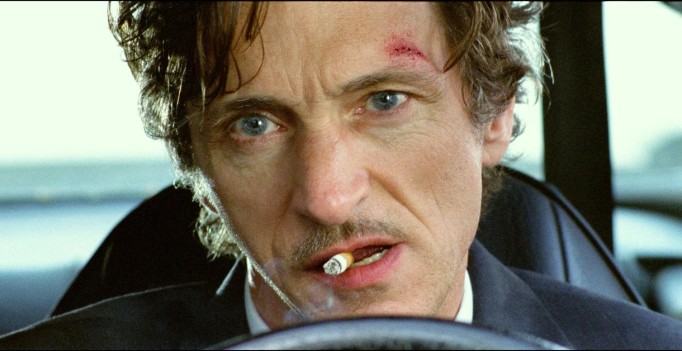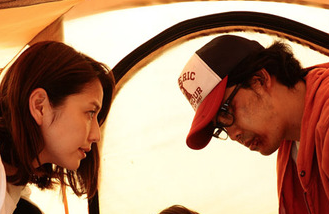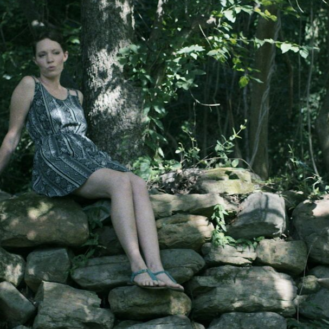Private Investigator Mel Sampson (John Hawkes) fast-talks his way through strip clubs and mob bosses for one very dear-to-his-heart dancer. After one-time acquaintance Dorothy (Crystal Reed) places a call to Sampson for help, Sampson comes running, but he’s too late. The chain-smoking Sampson doesn’t rest until he finds out what happened to her – and makes sure the appropriate parties understand their mistakes.
Dennis Hauck’s Too Late is film noir by tone through and through. Stylistically, it feels too modern: the angle choices, camera movements and editing are choices of today’s independent filmmaker. The completely diegetic soundtrack, some cinematic zooms here and there, and the heavily-advertised 35mm film are nods and winks towards the beloved genre, but the real noir of Too Late is in the script – the conversational dancing characters perform can’t be mistaken as anything else. The dialogue is quick and clever enough that it doesn’t matter that it isn’t the least bit realistic. The noir lifestyle is a fantasy; it may as well be embraced.
That said, in today’s dialogue, one would hope that Hauck has a decent sense of irony and awareness. All the negative tropes are there: the hard-boiled dick, the sweet girl in need of saving, the femme fatale. Along with those tropes, there’s a bit of realism added that removes any indulgent romance from Too Late. Sampson is cool and clever, but it’s obvious he’s miserable; femme fatale Jill (Dichen Lachman) is strong, confident and doesn’t need saving, but she’s consistently harassed and demeaned in all-too-familiar ways. Too Late seems to intentionally remove its concocted noir shroud for these moments. The film itself slips out of character to dissuade the glorification of the seemingly-cool noir lifestyle: it’s misogynist and depressing, and it’s not okay to not address that anymore.
Above all, Too Late is a fascinating watch. Five or ten minutes into the first scene, you might scrounge your short-term memory for the last time you noticed a cut in the film. Well, there wasn’t one, and there won’t be one until the next act – which will be one continuous shot as well, and the next one and the next one until the finale. Fascinatingly, the film boasts the feat of having a total of 15 different shots, 10 of which are squeezed into the last two minutes. It’s not even distracting: realizing the gimmick takes you out of the moment for a few minutes, but after it only heightens the involving real-time aspect of storytelling (as well, it further emphasizes the relevance of the film’s title). The non-sequential structure is also enticing. Even when the story is over, the film isn’t, and there’s more to learn about the characters that wraps everything up nicely.
There isn’t just one take-away from the film: there’s a lot that can be looked at and contemplated. Hauck’s exceptional storytelling, technical achievements, and the performances he’s able to obtain let you know that it is self-aware, and its faux pas are intended ironically. Too Late is extremely enjoyable on many fronts; you’ll be struggling to walk away from it in a bad mood.
**********
Do You Tweet? Follow These Tweeple:
Trevor Jeffery: @TrevorSJeffery





Be the first to comment